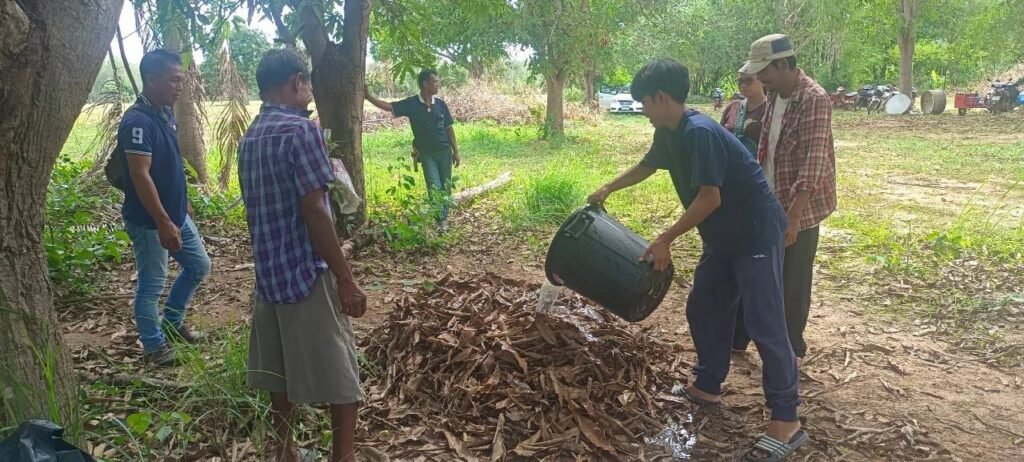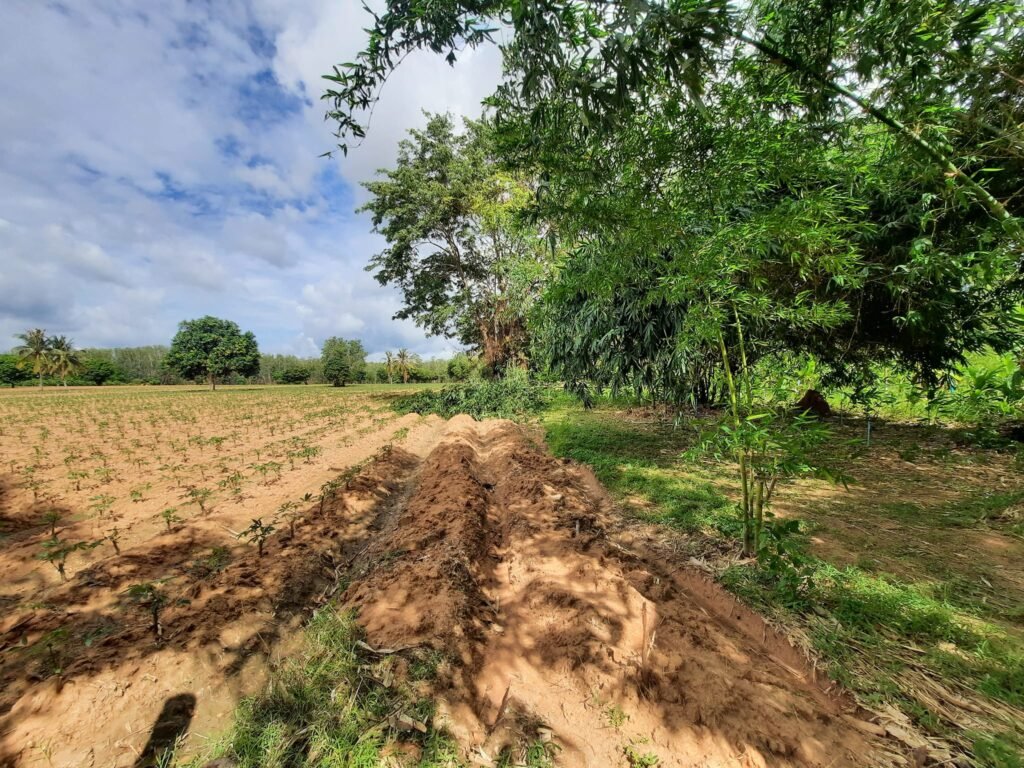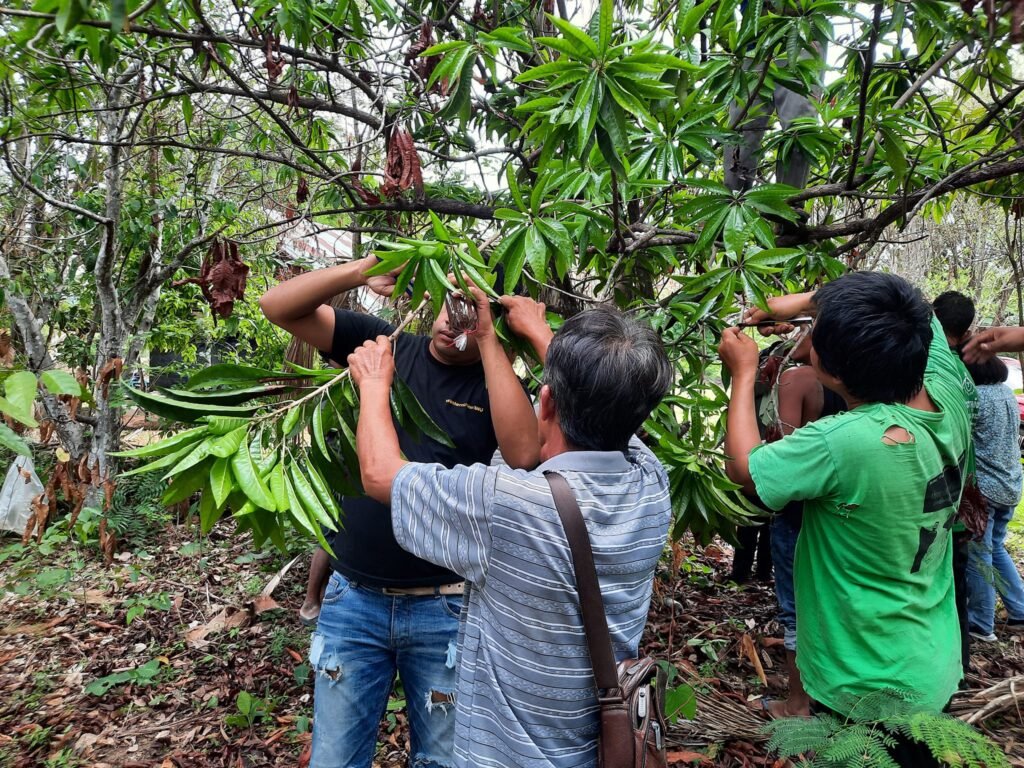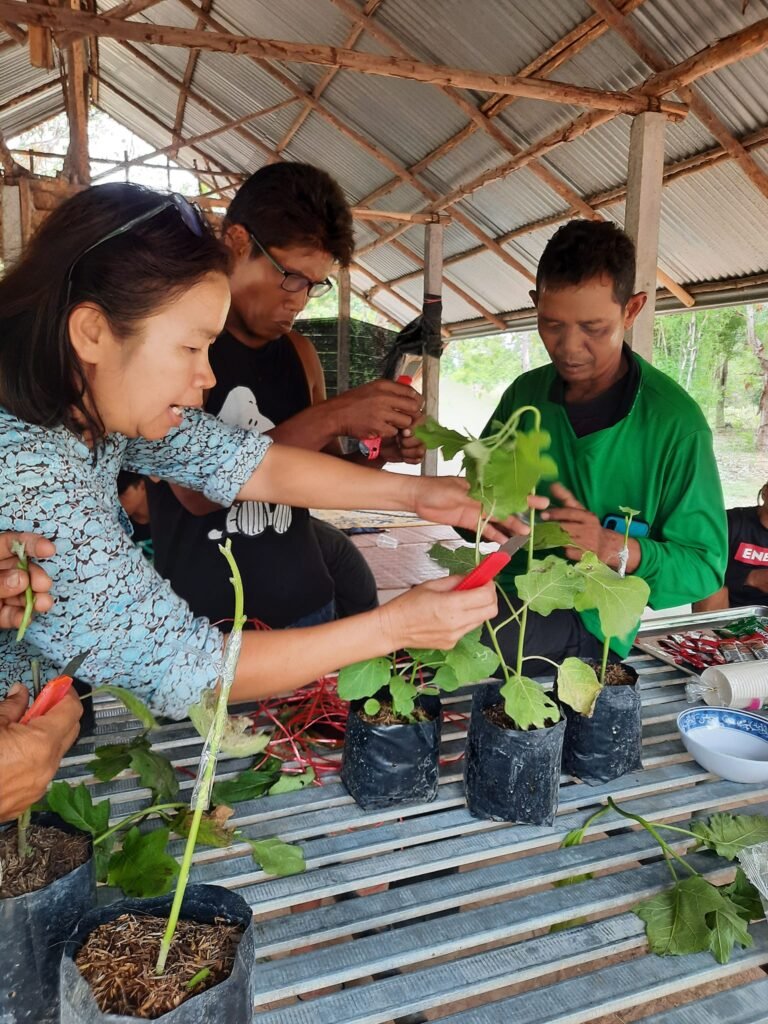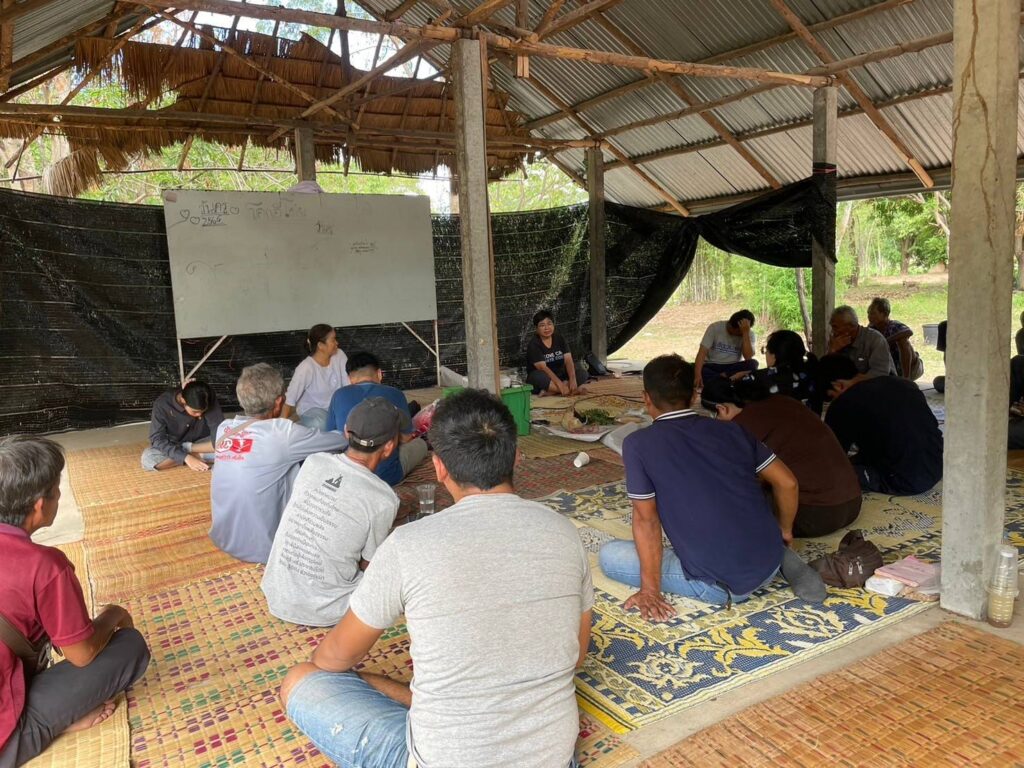Seeds and Soil: Notes from AOP’s Third Agroecology Camp in Thailand
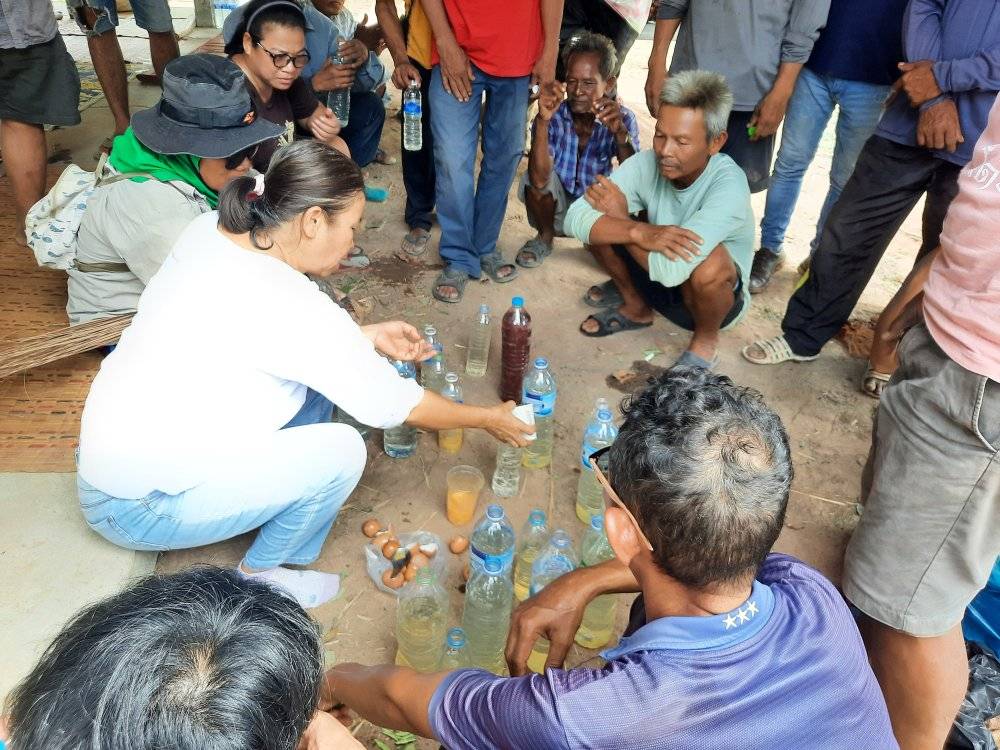
From June 1-2, 2024, the Bamrung Kayotha Agroecology School, run by the peasant union Assembly of the Poor, held a camp for the Kok Edoi autonomous peasant communities in the east of the country. The camp focused on vegetative propagation and soil improvement, while also addressing the larger themes of seed, land, and food sovereignty.
The participants analyzed and expressed concern about the growing corporate control over peasant seeds, with the introduction of industrial hybrid varieties. They also lamented the stifling of community rights over seeds through mechanisms such as patents and intellectual property rights, often coerced through international conventions such as the Union for the Protection of New Varieties of Plants (UPOV 1991).
“A biotech corporation breeds a new variety of mango and patents it. Peasants can buy the new mango seeds to grow. But they cannot keep the seeds to grow in the next season. They cannot use any parts (buds, stems, etc.) to propagate. They cannot use mango fruits to make a product (e.g., mango jam) for sale; otherwise, they are forced to pay the biotech company. These practices violate Article 19 of the UN Declaration on the Rights of Peasants, which defends our right to save, exchange, and use seeds freely,” a community member expressed his frustrations.
At the camp, vegetative propagation techniques—budding, grafting, and layering—were understood not merely as techniques but rather as acts of defiance. By mastering these methods, peasants reaffirm their ownership of native genetic resources. The Seed Guardianship Program of the Bamrung Kayotha Agroecology School aims to bolster native seeds and genetic diversity, paving the way for true seed sovereignty.
The second day of the camp brought up the question of land rights and soil health. Across the globe, peasant movements like the Assembly of the Poor, which is part of La Via Campesina, fight not just for access to land but for its sustainable stewardship. As practitioners of agroecology, peasants from the Kok Edoi community also understand that nurturing soil fertility isn’t just a technique; it’s defending, protecting, and reclaiming their rights to land.
“For agroecological peasants, improving soil fertility is the act of claiming our right and righteousness to land. Peasant movements worldwide are fighting for agrarian reform and rights to land. But if after getting the land, we carelessly let it degrade or become infertile, and finally nothing can be grown, then our struggle is useless. If we use the hard-earned land for monocultural production of cash crops with heavy use of agrochemicals and machinery, our land will lose fertility and topsoil, become dense and less productive, requiring more money for chemical fertilizers. The cost of production skyrockets, and peasants become indebted,” one of the community members was heard saying.
Near the campsite, the contrast between conventional monocultural practices and agroecological principles was starkly illustrated by two adjacent plots. While on one, the tapioca plantations struggled with lifeless, eroding soil, the agroecological farm next to it flourished with dark, fertile earth. This disparity, the participants underlined, demonstrates the destructive consequences of industrial agriculture and the resilience of traditional farming methods.
The participants at the camp also lamented a growing tendency among agronomists to deride traditional peasant practices and techniques. Over the last decades, successive and aggressive state-led policies have promoted a model of the Green Revolution that encouraged intensive chemical inputs for better yield, all with devastating consequences for soil health. The aftermath of these policies is now visible to all, and yet agronomists build a narrative blaming the peasantry for soil degradation. “Nothing could be farther from the truth,” the peasants say.
Amidst these challenges, the Agroecology School remains a beacon of hope. At the camp, the sharing of seeds—gourds, muskmelons, and drought-resistant upland rice varieties—exemplified solidarity and collective action. These seeds not only ensure biodiversity but also resilience in the face of climate change. The community’s commitment to food sovereignty permeated the camp’s meals, all sourced from Kok Edoi Forest—such as bamboo shoots, mushrooms, and other vegetables.
Also Recommended | A short documentary on Kok Edoi Community and Land use (published by AoP in 2015)

